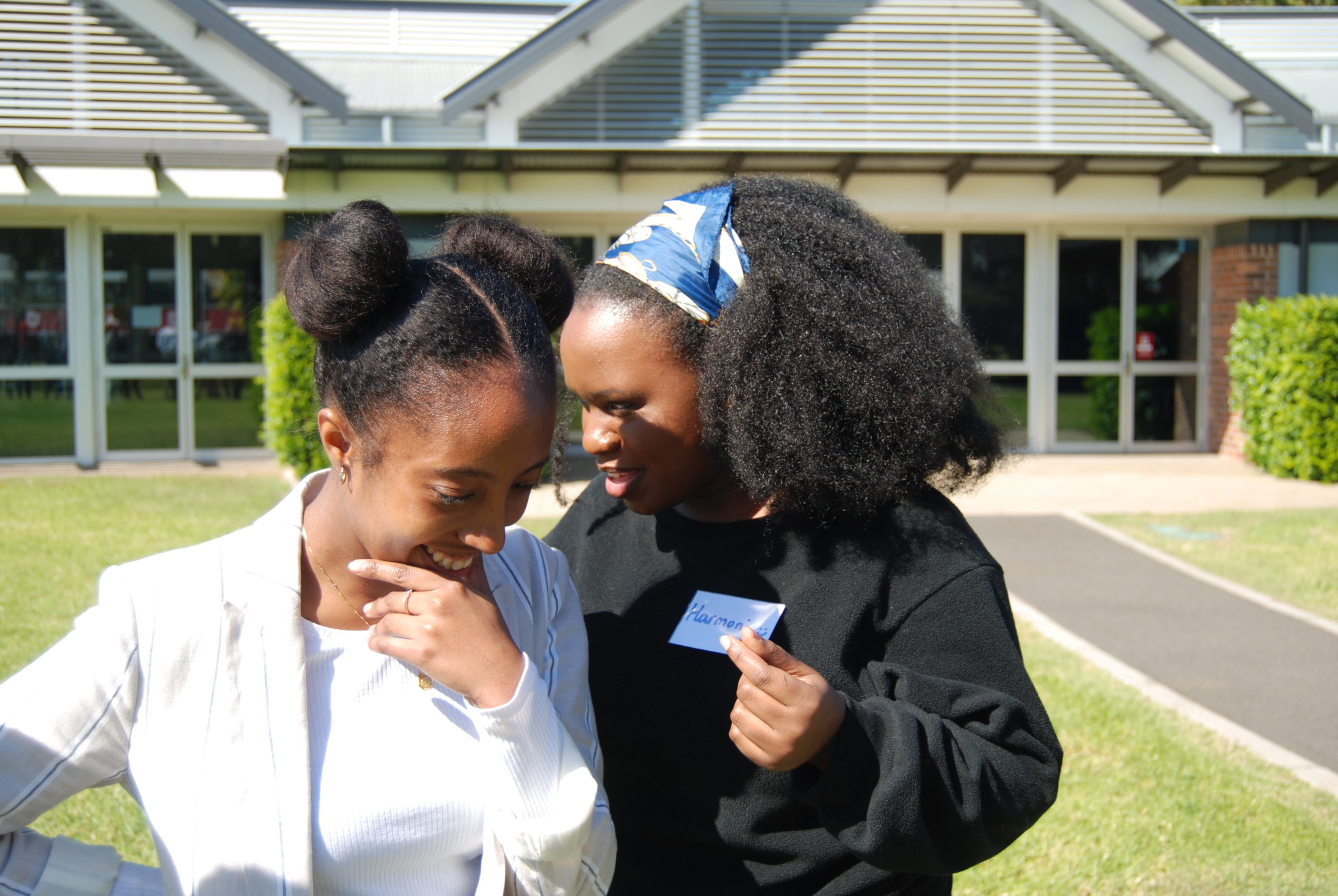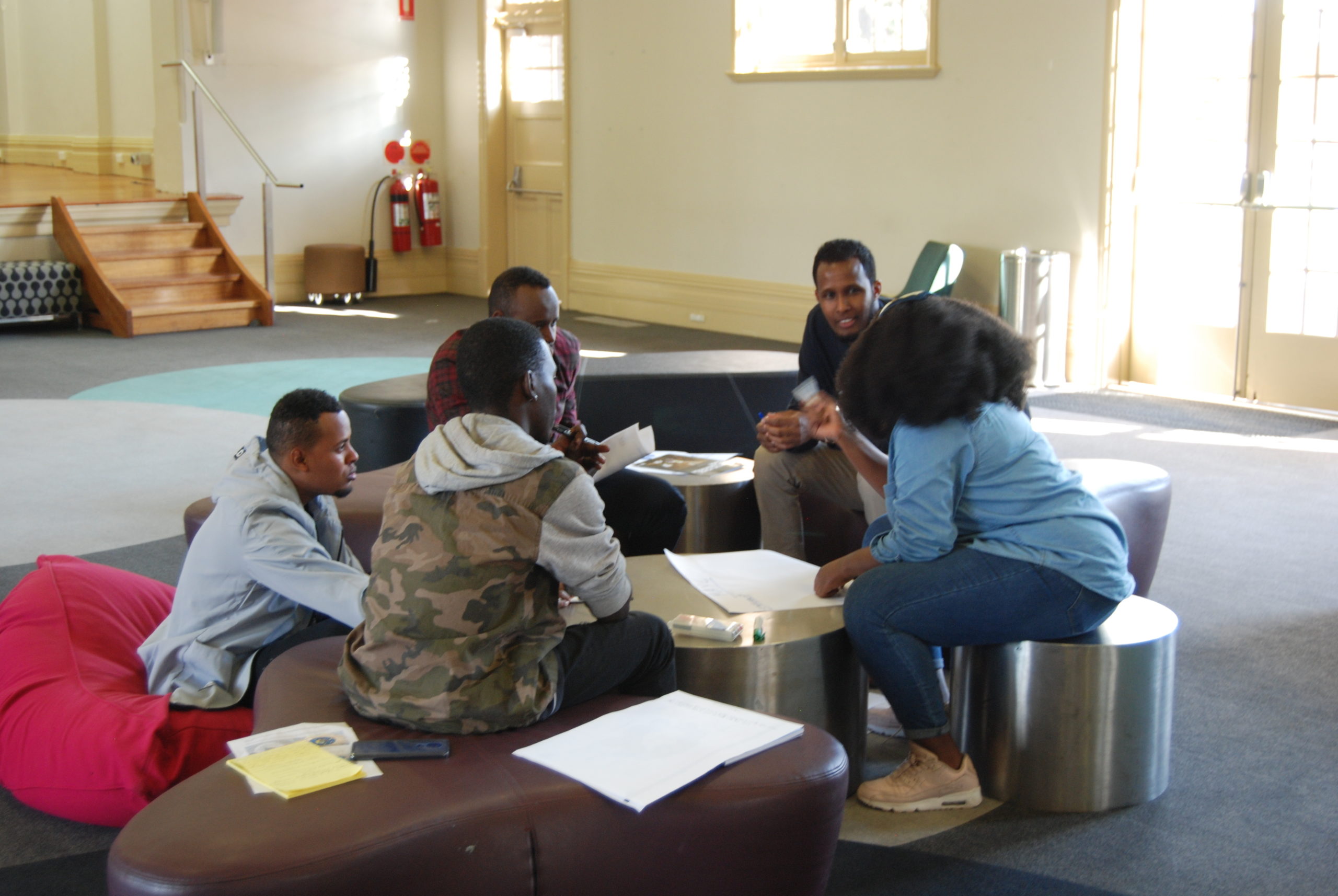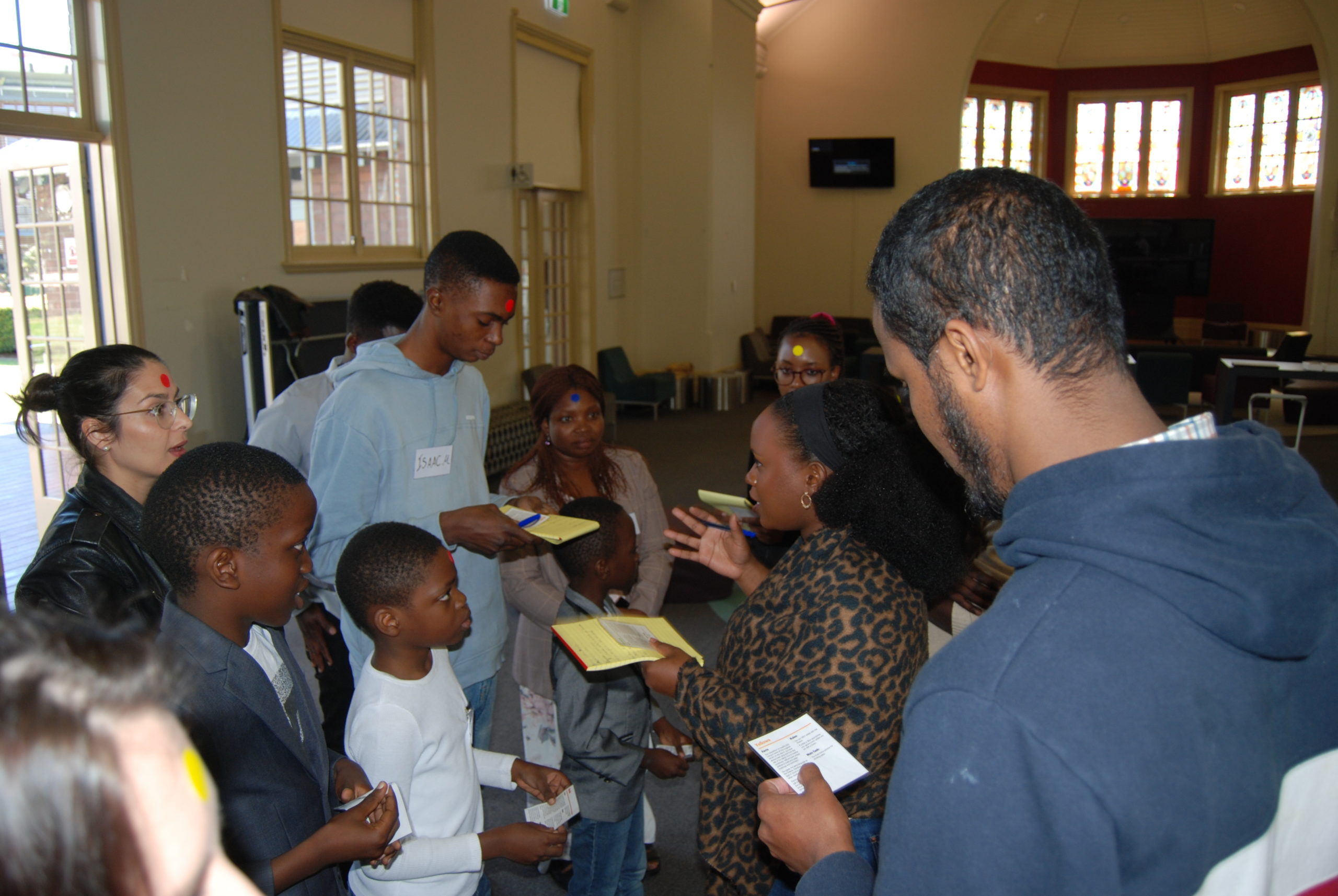In collaboration with Multicultural NSW (MNSW), the Institute of Economics and Peace (IEP) and Western Sydney University (WSU) selected five NSW communities to deliver an educative framework to enhance social cohesion and build youth agency.
The project was named the ‘Positive Peace, Cultural Wellbeing and Youth Agency Initiative: Exploring peaceful solutions to living well in diverse communities’. The project was designed to adapt IEPs Positive Peace framework (PPF) to each targeted community to foster cultural wellbeing and support the development of community led projects aiding the agency and resilience of each community.
The workshop was delivered across three full days from the 24th – 26th of April and had 15 participants, including three children who attended with their carer. The delivery agenda for the workshop was broken up into sections guided by the eight Pillars of Positive Peace.
Day 1 was focused on introductions and group formations, which saw participants reflect on their own definitions and understandings of peace. This was further explored in an interactive simulation of the ‘Pillar Island’ activity, which divided participants up into clans who were all facing resource and climate crises. Communication and mutual understanding were essential to reach a collective resolution, which is reflected in the below statement:
I realised the hardest part [of the exercise] wasn’t negotiating what we needed…it was more about coming together to co-exist and how we live together based on our [different] beliefs.

Day 2 saw participants reflect on the eight Pillars of the Positive Peace. Participants were encouraged to explore what connected all participants, what brought them together and ultimately what their end project goal was. This prompted a collective decision to name the group the ‘African Australian Youths for Change’. To empower the community’s youth, participants discussed the need for greater representation and policies, which ensured their voices were heard and considered at the decision making and leadership level.
We want to inspire the African youth to feel a responsibility to contribute to Australian society while benefiting themselves.
A range of activities on day two demonstrated the significance of the eight Pillars for establishing peaceful and transparent societies. For instance, a whispers exercise illustrated the need for the free flow of information. The activity saw an initial statement and a vastly different statement that resulted by the end of the whispers chain, which highlighted the impact of misinformation. Participants expressed their astonishment about the inaccuracy between the two different versions of the statement and a discussion was held amongst the group, highlighting their understanding of the importance of information to flow freely and without distortion.

Day 3 saw participants activate and apply the Pillars to their own communal context and project planning. Focusing on the word ‘inspire’, the group devised their project “Employment Pathways For African Australian Youth”, which will seek to inspire young African Australians to pursue education and entrepreneurial opportunities.
Education and upskilling was discussed as an important avenue to empower the community’s youth to enter employment opportunities and the business sector with confidence. The projects expected impact is multifaceted through its capacity to address broader issues in the community such as social exclusion, welfare dependency, mental health and addiction issues.

Employment Pathways For African Australian Youth and IEP.
Employment Pathways for African Australian Youth presents a unique opportunity with long-term social, economic and health outcomes for the African Australian youth and the wider Australian community. IEP’s eight pillars for Positive Peace informed the project’s key objectives, which will be delivered through monthly meetings, workshops and training opportunities and a networking dinner event.